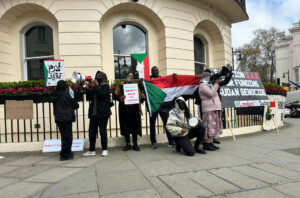‘Serious threat to peace’: Security Council extends mandate for Abyei
The mandate of the UN peacekeeping force in Abyei has been extended by the Security Council, which thinks that the situation along the border remains a serious threat to international peace.
The mandate of the UN Interim Security Force for Abyei (Unisfa) was extended until 15 May 2017 on Tuesday, by the UN Security Council which recognised that the situation along the Sudan-South Sudan border remains a serious threat to international peace and security.
Unanimously adopting resolution 2318 (2016), the 15-member organ reiterated its demand for Sudan and South Sudan to urgently establish an Abyei Area Administration and Council, as well as a police service that would take over policing functions throughout the area, including the protection of oil infrastructure.
The Council also expressed its renewed concern over delays and stalled efforts to fully operationalise a Joint Border Verification and Monitoring Mechanism in the area, which UNISFA would support. Sudan and South Sudan have still not implemented the temporary arrangements for the Administration and Security of the Abyei Area as set out in the 20 June 2011 Agreement.
The UN peacekeeping force has monitored the security and demilitarisation in the oil-rich region since 2011. There is no government or police force, as its status has been unresolved after South Sudan seceded from Sudan and the governments failed to agree on the border division.
Demilitarised zone
The Security Council urged the importance of the determination of the Safe Demilitarized Border Zone centreline on the ground. The zone is still not workable owing to disagreement over the centreline, and each country accusing the other of harbouring armed movements operating across the border.
The engagement between the Ngok Dinka and Misseriya tribes has grown, a development welcomed by the Council, while it urged all Abyei communities to exercise maximum restraint.
After the voting, the representative of Sudan, Omer Dahab Fadl Mohamed, said that Unisfa's efforts had resulted in improvement of the security situation in Abyei, and better relations between the Missiriya and the Ngok Dinka. He said that, because Abyei is Sudanese territory, the situation could only be amended through a referendum agreed on by the two countries.
Fadl Mohamed claimed that South Sudan still harbours rebel groups that launched operations in Sudan, and called on the United Nations and the African Union to redouble their efforts to urge South Sudan to enable the work of the Joint Border Verification and Monitoring Mechanism.
According to the South Sudanese representative, Sudan had imposed restrictions on non-governmental organisations in the area. He asked the committee that investigated the killing of the Ngok Dinka Paramount Chief in May 2013 to make its report public.
Returnees
Last September, “about 74,000 of the residents” have returned to the eastern areas of Abyei, according to Deng Meding, the chairman of the Supervisory Committee of the Government of South Sudan. He said that there is a relative stability, but pointed out that there remain small armed groups that storm markets and terrorise citizens.
The Security Council on Tuesday said it is concerned about the threat of landmines and explosive remnants of war in Abyei, which hinder the safe return of displaced people to their homes and safe migration.
Related:
Council calls on Sudan for civil, humanitarian services in Abyei (24 June 2016)











 and then
and then